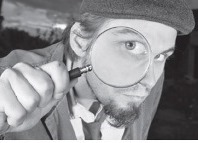Podgorica, 14 June 2014 – “There is a weak culture of investigative journalism in Montenegro, with young journalists not being encouraged by editors to use the access to information law,” stated participants in last week’s Legal Leaks training in Podgorica.
Long timeframes for responding to requests for information and complex appeals procedures were also concerns raised by the participants in the training, which took place on 12 and 13 June 2014 and was organized by UNESCO in cooperation with Access Info Europe, the Media Self-Regulation Council and South East European Network for Professionalization of Media (SEENPM). The event gathered around 20 journalists.
Aleksa Ivanovic, council member of the Agency for Personal Data Protection and Free Access to Information, introduced the situation of access to information in Montenegro. The discussions then centered on the dilemmas of ethical and professional journalism and on the importance of exposing wrongdoings for a democratic society. Participants discussed various ethical issues regarding the tension between privacy and disclosure of information, with concrete examples such as land and company registers which contain private data but where there is also a countervailing public interest in knowing the information.
The second day focused on questions of journalistic ethics. There was a lively open debate from across the polarized Montenegrin media landscape, which has multiple self-regulation mechanisms including the Media Council and ombudspersons for some private newspapers and televisions. The discussion with Ranko Vujovic of the Media Council for Self-Regulation and Bozena Jelusic, ombudsperson of the daily Vijesti, included a debate on whether media are responsible for comments posted on their websites by members of the public.
Another issue was whether there is a difference between politically slanted media and professional media. The experts from Access Info noted that many media around the world have some kind of political or economic perspective, but that this does not prevent high quality journalism with rigorous fact checking.
Marijana Buljan presented the third report by Human Rights Action, an NGO that monitors and assesses the work of journalistic self-regulatory bodies in Montenegro. She noted that many complaints still come from political actors rather than members of the broader public.
“There is an acute need for media self-regulatory bodies to establish a debate on ethics and professional standards,” she said. “All self-regulatory bodies should implement the code of ethics objectively and evenhandedly. This is a crucial step forward for more balanced and ethical media in Montenegro.”
This event took place in the framework of the EU-UNESCO project: “Promoting Media Accountability in South East Europe and Turkey,” which started in January 2013. The training was the fourth in a series of events taking place in countries across the region.
While in Podgorica, Helen Darbishire and Victoria Anderica of Access Info Europe held meetings with journalists from the daily newspapers Vijesti and Dan to discuss their self-regulatory systems and issues of media ethics and media freedom. The Access Info team also visited MANS, an NGO that actively uses the access to information law in its work to investigate and expose wrongdoing and corruption.
This article was originally published by UNESCO.org, and can be found here.
For more information, please contact:
Victoria Anderica, Access Info Europe
victoria@access-info.org | +34 91 365 65 58

